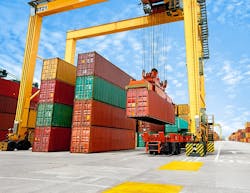Words Matter: Decoding the Union’s Reasoning Behind Newly Proposed Tariffs
Tariffs are in the news again. This time around, consumer tires made in South Korea, Taiwan, Thailand and Vietnam are now under the microscope.
The United Steelworkers (USW) got the ball rolling in May by filing a petition with the Department of Commerce (DOC) and the International Trade Commission (ITC), which the union publicized with a news release. Just before press time, the ITC voted to continue its investigation of whether tires from these countries have been “dumped” into the U.S.
It will take a long time for this process to play out and there will be numerous milestones along the way. We’ll probably see a few more news releases from the USW, plus statements from the opposing side.
But while the story is still “young,” I wanted to address some of the points made in the union’s initial news release. These thoughts are mine alone and may not mirror yours.
Donning my public relations hat, let’s analyze some of the words that the USW chose to present its case out of the gate. The old PR strategy of establishing control of the “narrative” comes to mind here.
“This deluge of unfairly traded imports hurt our domestic industry and workers, including many USW members. Even though demand for PVLT (passenger vehicle light truck) tires increased, domestic producers were still forced to grapple with reduced market share, falling profits and lost jobs.”
There is a lot to unpack here. First, whether imports have been “unfairly traded” has yet to be determined. As stated, the ITC is working on this now. “Reduced market share” is a nebulous term that calls for clarification. Reduced share by product segment? Specific geography? Channel? A manufacturer that pumps tires into both the replacement and original equipment channels can conceivably lose share in one or both areas – and across multiple product segments or lines. (Then there is our belief that market share gains and losses are usually the result of what happens at the sales counter. According to MTD research, the tire retailer directly influences the sale 70% of the time.) “Falling profits” and “lost jobs” also are vague terms in this context. Have subsidies truly driven decisions to permanently close tire manufacturing plants in the U.S.? Or were some plants already slated for closure due to other reasons, like cost-cutting or perceived market obsolescence of the products that were made there? And how does automation factor into the situation?
“Slowing Chinese imports was vitally important to saving the domestic tire industry. But Chinese producers found a way around our safeguards and other bad actors are eager to take advantage of U.S. demand.”
This quote refers to past tariff actions. Export of Chinese made tires to the States reached their zenith in 2014 at more than 60 million units. Since then, consumer tire imports from China have decreased by 94%. (Thailand, by the way, is now the biggest exporter of consumer tires to the U.S., having shipped 45.1 million units in 2019, according to MTD research.)
So, it is true that tariffs have had a big impact on the number of units shipped to the U.S from China. But the claim of “saving the domestic tire industry” could be considered a bit over-the-top. Was the domestic industry that destitute prior to the application of tariffs on Chinese tires? The words “bad actors” paint a dramatic picture, as well. Is a tire manufacturer domiciled in South Korea, Taiwan, Thailand or Vietnam morally worse or better than a tire manufacturer that is based in another country? It’s tough to link facts to such an emotionally charged statement.
“The only thing domestic producers should be worrying about right now is how to restart their operations safely. Yet even as they face falling demand in the wake of this deadly disease, they’re still struggling with unfairly traded imports that have continued largely unabated. Our only chance to preserve thousands of good, family-sustaining jobs is to stem this tide.”
By inserting COVID-19 into the conversation, the union is once again making an emotional appeal. Several tiremakers temporarily shut down their U.S. plants during the first quarter due to a sudden drop in consumer demand and concern for the safety of their employees. But has any company closed a plant specifically because of imports? The fact that workers at off-shore tire factories make considerably less than their counterparts has never been in dispute. But the decision to “rationalize” jobs is often made after more complex, internal calculations have concluded. We really don’t know how much of a direct impact imports have on these decisions.
It will be interesting to read carefully crafted statements from parties on both sides of the tariff issue as MTD continues to track this story. ■
If you have any questions or comments, please email me at [email protected].


